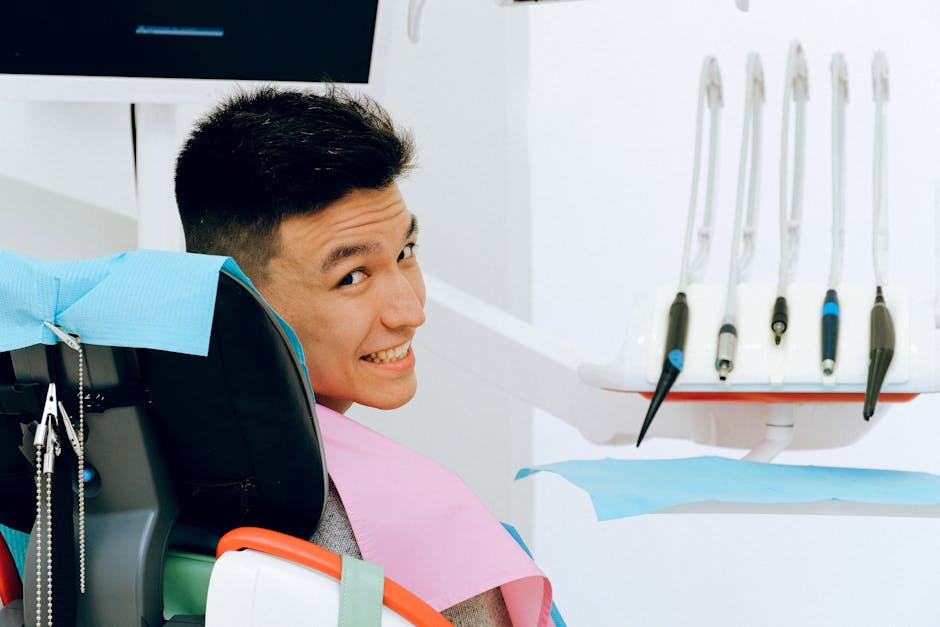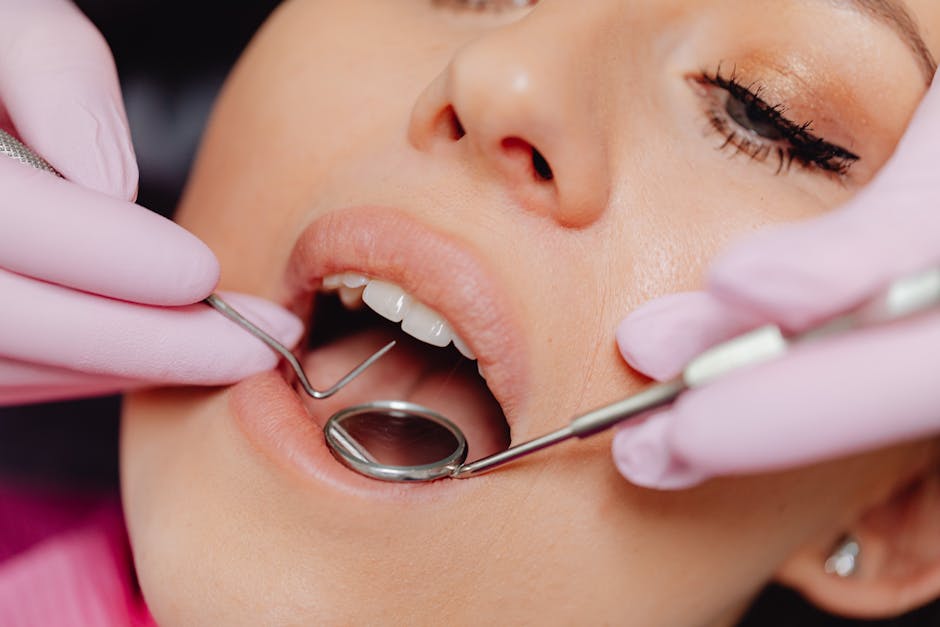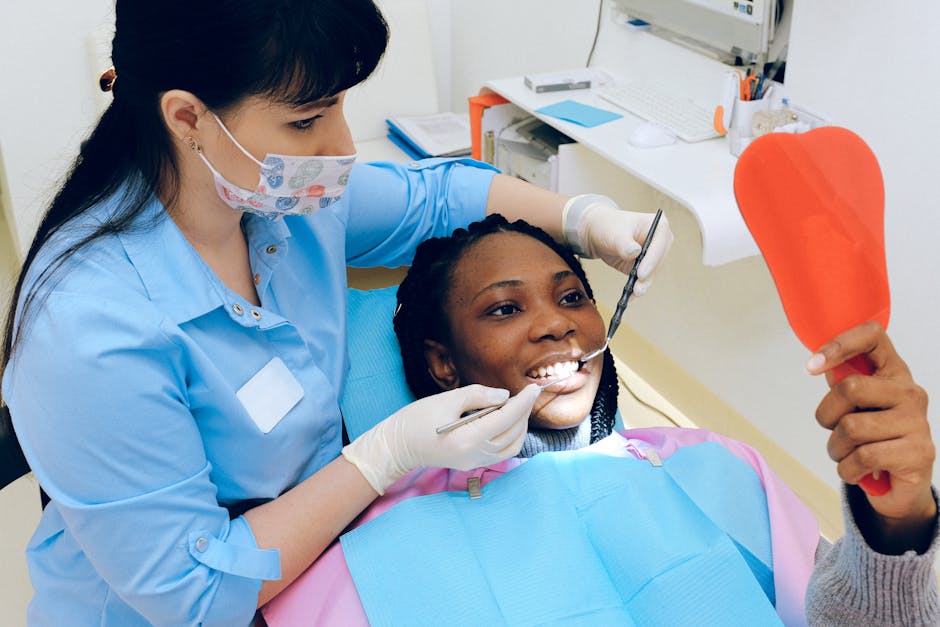Welcome to the world of cosmetic dentistry, where the fusion of art and dental science enhances not only the appearance but also the function of teeth. In Fort Worth, cosmetic dentistry is not just about a beautiful smile; it’s about achieving optimal oral health and boosting self-confidence. The cosmetic dentistry job description involves a variety of procedures ranging from teeth whitening to complete smile makeovers.
Professionals in this field are dedicated to providing innovative treatments that reflect the latest advancements in dental technology. Fort Worth Dental takes pride in offering an array of cosmetic dental services tailored to the unique needs of each patient. Whether it’s transforming smiles with Invisalign or restoring functionality with dental implants, our skilled practitioners are committed to excellence.
If you’re seeking to enhance your smile and are curious about what cosmetic dentistry can do for you, call (817) 592-8763 to schedule an appointment today. Our team is ready to provide you with personalized care and discuss the various treatment options available in Fort Worth.
Key Roles in Cosmetic Dentistry Practices

The key roles in cosmetic dentistry practices encompass a range of experts who collaborate to deliver exceptional aesthetic outcomes for patients. At the forefront are cosmetic dentists, who are responsible for designing treatment plans and performing intricate procedures to improve the teeth’s appearance. These professionals must possess a deep understanding of dental anatomy, as well as an artistic eye to craft smiles that are both functional and visually appealing.
Supporting the cosmetic dentist are dental hygienists and assistants, whose roles include preparing patients for treatment, assisting during procedures, and providing post-operative care instructions. Hygienists also play a crucial role in patient education, promoting good oral hygiene practices that maintain the results of cosmetic treatments.
Behind the scenes, dental laboratory technicians contribute to the success of cosmetic procedures by crafting custom restorations such as veneers, crowns, and bridges with precision. Their expertise is essential in ensuring that these restorations fit perfectly and match the natural color of the patient’s teeth.
Additionally, practice managers and administrative staff are vital in ensuring the smooth operation of a cosmetic dentistry practice. They manage appointments, handle billing and insurance matters, and create a welcoming environment for patients. All these roles combined contribute to the ultimate goal of providing patients with a smile that enhances their confidence and quality of life.
Essential Skills for Cosmetic Dentists

Becoming a successful cosmetic dentist requires a distinct set of essential skills that go beyond general dental expertise. Primarily, these professionals must have a refined aesthetic sense to envision and create harmonious smiles. Proficiency in color theory, shape, and texture is crucial for selecting the right materials and designing restorations that look natural.
Technical proficiency in modern dental procedures is non-negotiable, as cosmetic dentists often employ advanced techniques such as dental bonding, teeth whitening, and the use of porcelain veneers. Keeping up-to-date with the latest technology and methods, such as digital smile design software, is equally important for delivering cutting-edge care.
Interpersonal and communication skills are key for cosmetic dentists to effectively consult with patients, understand their desires, and manage expectations. Building a rapport and trust with patients ensures a more comfortable experience and satisfaction with the results. Moreover, meticulous attention to detail is required to execute treatments with precision and to identify the subtle nuances that can make or break a patient’s smile.
Furthermore, problem-solving abilities allow cosmetic dentists to navigate complex cases and unexpected challenges during procedures. They must be able to adapt quickly and devise solutions that maintain the integrity of the treatment plan. Additionally, business acumen and leadership skills are beneficial for those who run their own practices, as they must manage a team and ensure the overall success of the business.
The Impact of Technology on Cosmetic Dentistry Jobs

The field of cosmetic dentistry has been revolutionized by the advent of advanced technological innovations. Digital dentistry tools, such as intraoral scanners, 3D printers, and computer-aided design/computer-aided manufacturing (CAD/CAM) systems, have significantly enhanced the precision and efficiency of creating dental restorations. This technology allows for more accurate impressions, which is crucial for the fit and look of cosmetic dental appliances.
Laser technology has also made a substantial impact, enabling minimally invasive procedures that improve recovery times and patient comfort. For instance, lasers are used in teeth whitening to speed up the process and in gum contouring to shape the gum line without the need for sutures.
Moreover, digital smile design software has empowered cosmetic dentists to provide a virtual preview of the expected results, offering a collaborative approach to patient care. This not only helps in setting realistic expectations but also ensures patient satisfaction with the final outcome.
Imaging technologies such as digital X-rays and 3D cone-beam computed tomography (CBCT) provide detailed views of the oral cavity, aiding in precise treatment planning. These advancements have transformed the cosmetic dentistry job description, expanding the skill set required to include mastery of these technological tools and software. Dentists must now stay abreast of emerging technologies to offer the best possible care and maintain a competitive edge in the field.
Overall, technology has not only improved treatment outcomes but has also streamlined workflow, allowing cosmetic dentists to treat more patients effectively while maintaining high standards of care. The impact of these technologies continues to grow, shaping the future of cosmetic dental practices and the services they provide.
Understanding Patient Interaction and Communication
In the realm of cosmetic dentistry, the ability to interact and communicate effectively with patients is paramount. A significant part of the cosmetic dentistry job description involves understanding patient needs, managing expectations, and building trust. Dentists must possess excellent interpersonal skills to create a rapport with patients, making them feel comfortable and heard.
Effective communication extends beyond verbal exchanges; it encompasses active listening, empathy, and the ability to convey complex information in an understandable manner. When discussing treatment options, cosmetic dentists must ensure that patients comprehend the benefits, risks, and the different steps involved in the procedure. This clarity helps in making the patient an informed participant in their treatment plan.
Furthermore, patient interaction also involves addressing any concerns or fears they might have regarding dental procedures. Many individuals experience anxiety when it comes to dental care, and a cosmetic dentist’s role includes alleviating these fears through reassurance and education about pain management and sedation options.
Visual aids and before-and-after galleries can also be instrumental in patient communication. They allow individuals to visualize potential outcomes, which can be particularly motivating and reassuring. Additionally, non-verbal cues, such as maintaining eye contact and an open body posture, contribute to a more personable and engaging interaction.
In summary, the ability to communicate effectively is as crucial as technical competence in cosmetic dentistry. It ensures that patients are fully informed, comfortable with their decisions, and more likely to be satisfied with the results of their cosmetic dental treatments.
Career Path and Advancement in Cosmetic Dentistry

For those aspiring to thrive in the field of cosmetic dentistry, understanding the career path and opportunities for advancement is essential. Starting as a general dentist, one may pursue additional certifications and training in cosmetic procedures, such as veneers, teeth whitening, and bonding. As expertise grows, dentists can transition into a practice focusing predominantly on cosmetic dentistry, attracting patients seeking aesthetic dental care.
Continuing education plays a crucial role in the advancement of a cosmetic dentist’s career. Engaging in workshops, seminars, and conferences not only keeps a dentist abreast of the latest advancements in techniques and materials but also contributes to their professional development and recognition in the field.
Leadership roles such as managing a dental practice or heading a dental team become attainable with experience. For those with a penchant for academics, teaching positions in dental schools offer a way to shape the future of cosmetic dentistry while contributing to the field’s body of knowledge.
Professionals in this field may also choose to contribute to research, paving the way for innovative treatments and technologies in cosmetic dental care. With the right combination of skills, experience, and continual learning, a cosmetic dentist can significantly influence patient satisfaction and industry standards.
If you’re in the Fort Worth area and considering a career in cosmetic dentistry, or if you’re seeking top-quality cosmetic dental care, Fort Worth Dental is the place to start. With a team of experienced professionals who are leaders in dental implants, Invisalign, and other cosmetic procedures, we offer the expertise you need. Don’t hesitate to call (817) 592-8763 to schedule an appointment today and take the first step towards a rewarding career or a brighter smile.

